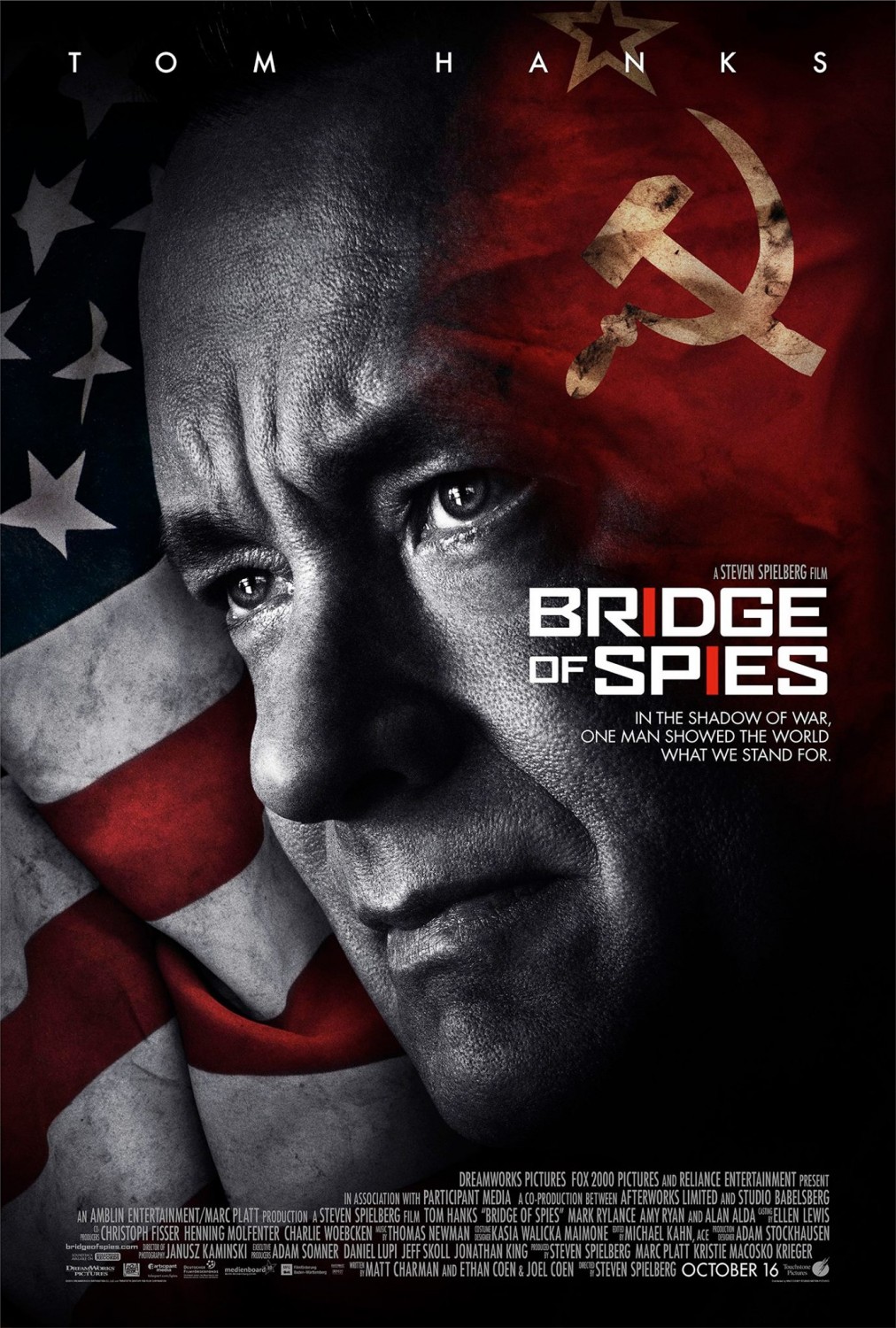Imagine you're playing a game of chess. Now, imagine all of the game pieces and all of the squares on the board are the same colour. It's difficult, isn't it? It's difficult to know whose pieces are whose, which moves are legal and which aren't. Finally, imagine this is a high-stakes game, and the results determine life or death for someone else. This is the world of Bridge of Spies.
Set during the Cold War, this Steven Spielberg film tells the true story of James Donovan (Tom Hanks), a New York insurance lawyer who is drafted to defend one Rudolf Abel (Mark Rylance) on multiple charges of Russian espionage. Most people, including the judge, believe this is an open and shut case, and the trial is merely a show for the public. Donovan doesn't see it that way, and is determined that Abel receives the fairest treatment possible, if only to demonstrate American values to the USSR. Despite his best efforts, Abel is found guilty on all counts.
Meanwhile, Francis Powers, an American air force pilot, is shot down over Russia while flying a U2 spy plane. He is captured and held in a Soviet prison, which offers an opportunity to Donovan. An exchange of prisoners is offered between the USA and the USSR. At the same time, in Germany, a young American student named Frederic Pryor is caught on the wrong side of the under-construction Berlin wall, and is held in prison. Donovan then determines to negotiate with both parties in order to free both men in the exchange.
With the assistance of the CIA, James Donovan is sent to Berlin to perform the negotiations. From here begins a strange game of misinformation, tricky negotiations, and secrecy. Donovan succeeds against difficult odds, and the film concludes with an edge-of-your-seat exchange set on the Glienicke Bridge, where we discover if everyone is true to their word or not.
The script, by Matt Charman and the Coen Brothers, is superbly written. Every line drips with hidden meaning, and the tension is consistent until the very end. Unlike other films of its kind, Bridge of Spies chooses not to use any subtitles, despite numerous scenes with dialogue in German and Russian. I find that not knowing the other languages serves to increase the mystery, as well as communicating Donovan's experience of being a stranger in foreign territory. The audience never truly misses anything from the lack of subtitles, but I can't help but wonder if the film experience is different for people who are fluent in German or Russian.
The script is helped with an outstanding cast. Tom Hanks gives a wonderfully convicted performance as James Donovan, a man who is well aware of the odds against him, but is determined to do whatever it takes to see justice done. Equally good is Mark Rylance, as the always stoic Rudolf Abel, a performance which earned him an Academy Award. Among the rest of the well-rounded cast, I especially enjoyed Mikhail Gorevoy as Ivan Schischkin. His performance reminded me of the work of classic bad-guy actor Peter Lorre.
At its heart, Bridge of Spies is all about the concept of freedom. It examines how we define freedom, as well as the effects of limiting freedom, or removing it outright. To James Donovan, it was irrelevant whether Rudolf Abel was a spy or not. What mattered was his being given a fair chance at living a life of freedom. This film provides a very interesting look at history, and how extreme politics can affect a country's society. Considering the political climate today, it's an important lesson to be reminded of.

No comments:
Post a Comment